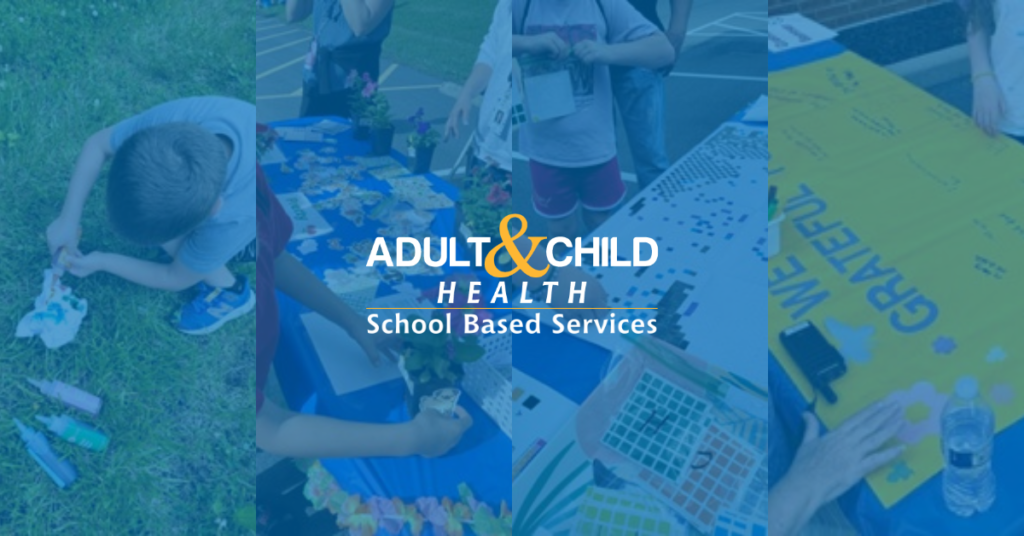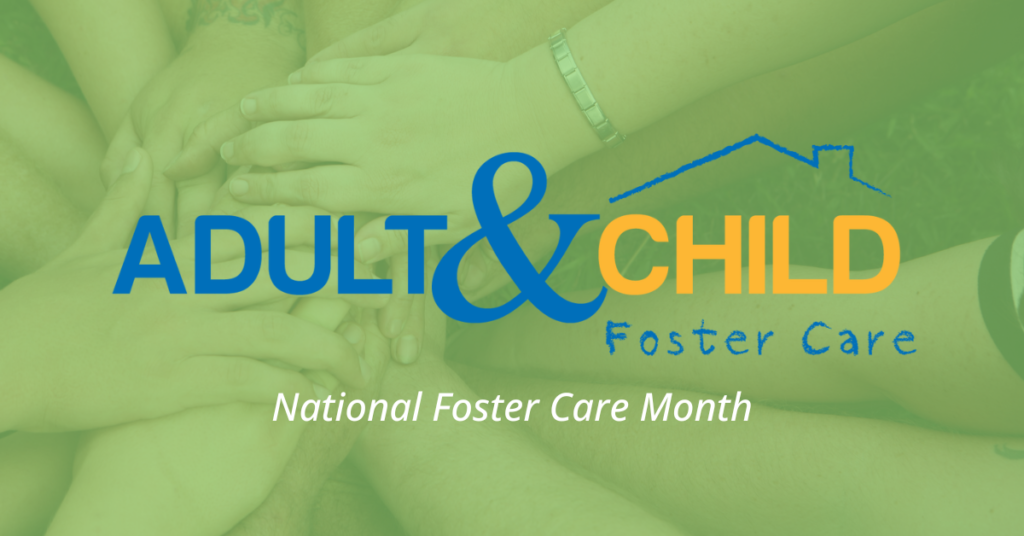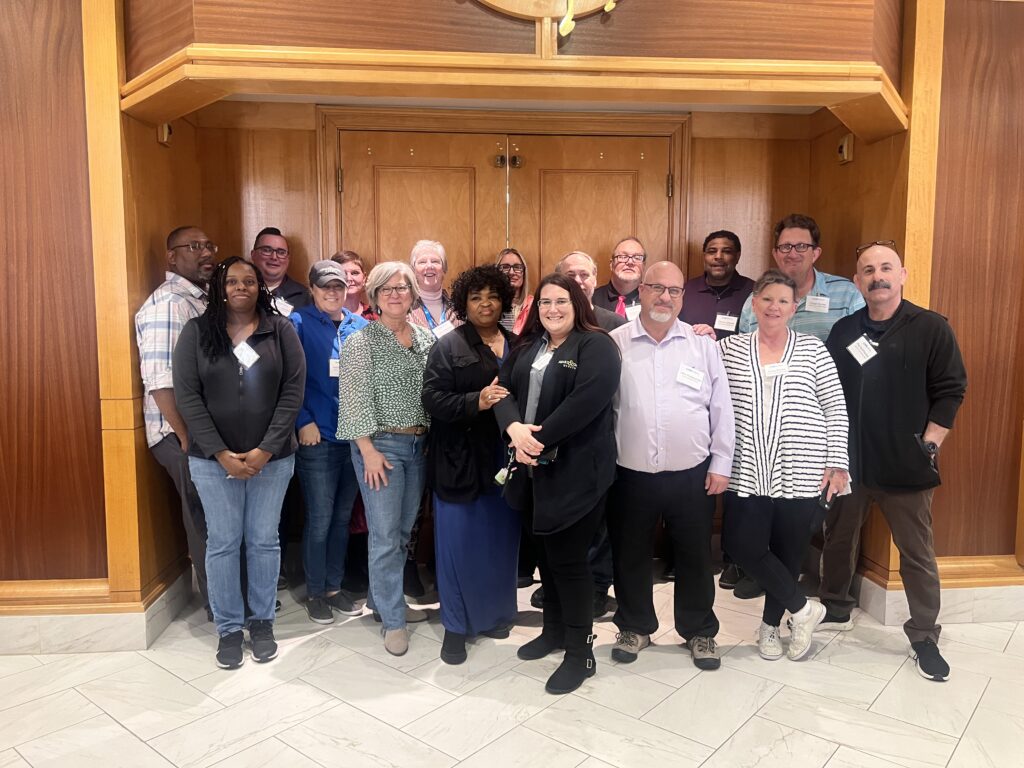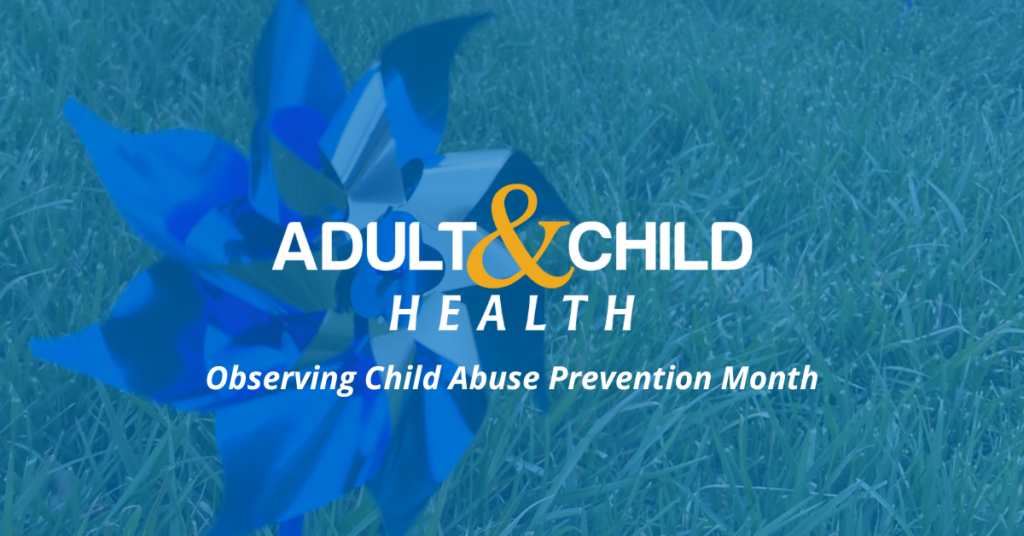Perry Township School Enjoys a Successful Summer SEL-ebration

Students and families at Glenns Valley Elementary enjoyed a Summer SEL-ebration on May 15 thanks to the planning and preparation of Glenns Valley Elementary SEL Specialist, Miranda Mellendorf, and Glenns Valley Elementary Social Worker, Amanda Craig, along with support from the GVE PTA, GVE teachers, and additional members of the A&C SEL team. Attendees made tie-dye t-shirts, slime, decorated some petunia plants to take home, added to the GVE Gratitude Banner, helped with a collaborative sticker mosaic, played outdoor games, and discovered how all of these fun activities can help promote SEL. The event was free for students and their families and was made possible by a Family Engagement Impact Grant from the Perry Township Education Foundation.
National Foster Care Month: “Engaging Youth. Building Supports. Strengthening Opportunities.”

May is National Foster Care Month. This year’s National Foster Care Month theme, “Engaging Youth, Building Supports, Strengthening Opportunities” emphasizes the importance of a child welfare system that authentically engages and supports young people who are preparing to leave foster care. At Adult & Child Health— and nation-wide— we are urgently searching for foster parents willing to open their homes and act as mentors to older youth. Foster Parents as Youth Mentors Due to past trauma and system involvement, youth in foster care often struggle to trust adults. Foster parents have the ability to be stable and consistent people in youths’ lives. By showing unconditional care and support, setting boundaries, and allowing youth to have a voice in their own stories, they help youth to rebuild their trust in others. Many of A&C’s foster parents support youth from foster care well after they have “aged out” of the system. By providing long-lasting and permanent relationships with youth, these mentors help the youth cope with past trauma and learn how to heal. These relationships also provide a guide for what healthy relationships can look like for them in the future. Foster parents help youth with little to no family support access resources such as financial aid for college, resources for safe and stable housing, practice interviewing for jobs, and support and encouragement to make positive decisions that will help them achieve success in adulthood. Pursuing Permanency: Upstream Preventions In the context of child welfare, permanency means that a child has “a safe, stable and secure home and family, love, unconditional commitment, and lifelong support in the context of reunification, adoption, or legal guardianship.” The first step toward achieving permanency is ensuring that adults have the supports and services they need to care for the children in their lives. At Adult & Child Health, we know the value of the continuum of care that our staff are able to provide to our patients and clients. Our comprehensive, wide-ranging services touch the whole health journey, from prevention and outreach to treatment and management/enabling services. The ultimate goal of A&C’s services in regards to permanency would be to eliminate the need for a child to be removed from their home due to unsafe circumstances. The continuum of care is crucial in creating a safe, healthy, and care-free childhood for children in our communities. Service lines that don’t directly work with youth have the capability to positively impact adults, lifting them up and enabling them to care for the children in their lives in more effective and compassionate ways. Youth placed in A&C-licensed foster homes also have connections to the support our staff offer. Primary Prevention: Programs and services designed to promote the general welfare of children and families. Secondary Prevention: Services identified and provided to families who have identified risk factors for maltreatment. Tertiary Prevention: Services provided after the occurrence of abuse or neglect. These services are designed to prevent the recurrence of abuse. Most of Adult & Child Health’s services fall under primary prevention. It’s even described in our value statement: “We strive for caring communities, where every child, adult, and family have opportunities to live healthy, purposeful lives.” Our child welfare and wraparound teams play a large role in secondary prevention, with therapeutic foster care and behavioral health/therapy services stepping in to provide additional tertiary prevention. The ability to focus on upstream efforts to build stronger families is a major positive outcome of Adult & Child’s continuum of care. According to Prevent Child Abuse Indiana, “by focusing especially on primary prevention, we can help mitigate the necessity of the other two.” Fostering as a Community Support In cases where it is unsafe for a child to remain in their home of origin, a foster family steps in to provide appropriate care and a loving, temporary home. The foster family is connected to an array of resources to support themselves and the child, while the parent(s) of origin are also supported in taking steps toward reunification whenever possible. Permanency is vital for nurturing the safety and well-being of children and youth in foster care. Permanency might look like: Reunification with a child’s family Being placed with members of their extended family in guardianship or adoption Becoming members of new families through adoption As youth in foster care age, it is imperative to provide them with the supports they need to transition into adulthood. Many youth in the foster care system experience multiple episodes (removal from their home) of foster care. Many also experience multiple placement changes over an episode of foster care. This instability can lead to poor overall outcomes for the youth. In the state of Indiana in 2021, only 62% of youth who existed the foster care system were doing so due to permanency. According to a study done by the Annie E. Casey Foundation, youth who had faced foster care experienced higher rates of incarceration, unemployment, and young parenthood by the age of 21 compared to their peers who had not experienced the foster care system. They were also less likely to have health insurance, a high school diploma or GED, and stable housing. Studies show us that a person’s brain experiences a period of major growth and development from ages 14 to 25. Vital skills and tools like planning, decision-making, judgment, and coping skills are developed during this time. Adolescence is also a crucial time to counteract the harm that may have been caused by stressful and traumatic experiences in one’s youth. Exposing the adolescent brain to developmentally healthy experiences helps it “rewire” itself. Supportive, age-appropriate social services and resources— like many of those provided by the staff at Adult & Child Health— are instrumental in setting system-impacted youth on a path to a bright future. You can learn more about the roles of our staff who work with foster youth, including their insights and advice for parents and caregivers, through spotlight interviews with Sierra, Chris and Lindsay. If you’re interested in learning more about opening your home to youth in
Mental Health Services for the Most Vulnerable

STREET OUTREACH SERVICES AT ADULT AND CHILD HEALTH Integral to Adult & Child’s organizational mission is delivering “life-enhancing physical, social, and behavioral healthcare services” with hope, compassion, and creativity. The Homeless Outreach team at Adult & Child embodies that mission through the core belief that all persons deserve access to needed health and social services and that no one should fall between the cracks. “The Outreach Team at Adult & Child Health is responsible for saving lives throughout the year. They are real-life heroes, especially during inclement weather, as their focus is to provide needed supplies and conduct wellness checks on individuals exposed to harsh weather conditions,” said Jennifer Disbro, Vice President of Behavioral Health Services. Adult & Child began providing outreach services in 2011 with just one staff member providing outreach to individuals experiencing homelessness in Marion County. By the end of 2022, the program had grown to include six full-time positions under two different funding opportunities to meet the growing needs of the community. The team continues to find new and innovative ways to serve Central Indiana’s unhoused neighbors, which has included forging a partnership with Wheeler Mission. The two agencies welcomed a site visit by Zoe Frantz and LeeAnn Jordan of the Indiana Council of Community Mental Health Centers in fall of 2022 so that Zoe and LeeAnn could see firsthand how the organizations’ partnership has been impactful to persons experiencing homelessness. Staff from A&C, Wheeler Mission, and Indiana Council meet for a site visit. “Wheeler Mission is grateful for the long-standing collaborative partnership with Adult & Child Health. Through the years, our relationship has deepened and evolved to address the complex needs of those we serve across a widening spectrum of services and support,” said Colleen Gore, MSW, Chief Program Officer for Women’s Programming at Wheeler Mission and Adult & Child Health Board Member. “What began as a coordinated outreach approach has expanded to co-located mental health services and now involves discussions to provide supportive housing service. This flexible process is integral in promoting sustainable life change for some of the most vulnerable members of our community.” A DAY IN THE LIVES OF OUTREACH STAFF A typical day begins with a team meeting and the development of a daily plan for outreach. A large part of the day involves following up on referrals, which could come from a number of different sources. Outreach staff can become connected to individuals through city-wide outreach efforts, from staff who have stopped into local camps or locations identified by partnership efforts, through other shelters, and through their established walk-in office hours. Other Adult & Child staff make internal referrals to the outreach team as well. The team packs items for the day, including blankets, water, snacks, and Narcan. They head out into the community prepared to attend to any potential needs of those they serve, from food or medical requests to unplanned crisis scenarios. During outreach walk-in hours at Adult & Child Health, the team triages the needs of individuals as they arrive, with the goal of creating a coordinated entry access to complete housing assessments. However, during these hours, the team also links individuals to primary care and behavioral health and assists them in accessing crucial identification documents that may include birth certificates, ID cards, social security cards, and more. EXPANDING SERVICES THROUGH PARTNERSHIPS & EXTERNAL PROGRAMS The Outreach Team partners closely with a variety of external organizations and programs within the Central Indiana community. Some of these partnerships include the IMPD Homeless Unit, Wheeler Mission Men’s and Women’s Shelter, Horizon House, Homeless Initiative Program (HIP), the Coalition for Homeless Intervention and Prevention (CHIP), Adult Intervention Center (AIC), and the Marion County Prosecutor’s Office’s Quality of Life Program. A new partnership for the team, the “Wellness in Transit” initiative with IndyGo, began in May of 2023. Through this initiative, staff set up a table at the Carson Transit Center on Tuesdays from 1 to 4 p.m. This functions like a mini clinic, where staff are able to conduct rapid triages, assessments, behavioral health referrals, and more. TEAM STRENGTHS & PASSION “Adult & Child’s Outreach team members are incredible at engagement. They have a real ability to connect and build trust with individuals with significant untreated mental health issues,” said Brian Paul, Adult & Child Homeless & Housing Resource Team Leader. The team is diverse in their past work experience, which helps in the many situations they encounter out on the streets. Individual team members have medical backgrounds, rural outreach experience, legal backgrounds, and mental health/substance abuse treatment experience. The team is also made up of excellent community collaborators who often provide trainings to many of Adult & Child’s community partners. One recent training involved working with Wheeler Mission’s case managers on how to navigate the legal system. The Outreach team exemplifies one of Adult & Child’s values of “meeting people where they are”—often very literally. The team regularly meets individuals within the community in locations that include shelters, camps, and other places not meant for human habitation. Each Outreach team member is an advocate for persons experiencing homelessness as it relates to systems, services, and resources. They know most individuals they serve by name, take time to learn their story through a person-centered approach, and help each individual set goals. When someone is ready to be connected to services or resources, they are quick to respond. The team follows best practices and utilizes harm-reduction approaches. “It is such a joy to go out and get to know these folks. They are amazing individuals. Their connections to one another; how they allow us to be a part of who they are and their community,” said Susan Hobson, Street Outreach Professional. “We build some really deep, amazing relationships with the folks we serve. It’s a community of care going both ways.”
Child Abuse Prevention Month: At A&C, We’re All a Part of Creating Safe and Happy Childhoods

April is Child Abuse Prevention Month. At Adult & Child Health, we know the value of the continuum of care that our staff are able to provide to our patients and clients. Our comprehensive, wide-ranging services touch the whole health journey, from prevention and outreach to treatment and management/enabling services. The continuum of care is also crucial in preventing child abuse and working toward creating a safe, healthy, and care-free childhood for every child in our communities. Even the service lines that don’t directly work with youth have the capability to positively impact adults, lifting them up and enabling them to care for the children in their lives in more effective and compassionate ways. Let’s talk about prevention. Primary Prevention: Programs and services designed to promote the general welfare of children and families. Secondary Prevention: Services identified and provided to families who have identified risk factors for maltreatment. Tertiary Prevention: Services provided after the occurrence of abuse or neglect. These services are designed to prevent the recurrence of abuse. Most of Adult & Child Health’s services fall under primary prevention. It’s even described in our value statement: “We strive for caring communities, where every child, adult, and family have opportunities to live healthy, purposeful lives.” Our child welfare and wraparound teams play a large role in secondary prevention, with therapeutic foster care and behavioral health/therapy services stepping in to provide additional tertiary prevention. The ability to focus on upstream efforts to build stronger families is a major positive outcome of Adult & Child’s continuum of care. According to Prevent Child Abuse Indiana, “by focusing especially on primary prevention, we can help mitigate the necessity of the other two.” A&C provides and links families to crucial supports. Linkage to supports and services is a significant way in which many Adult & Child teams are creating stronger families. Below are some ways Prevent Child Abuse Indiana recommends that communities can get involved– and where A&C is already working to have an impact. Strengthen parenting. Adult & Child Health provides many ways for parents to access support. Different service lines offer education, home visits, and additional resources. Respond to family crises. Families can receive additional support when they need it through Adult & Child Health’s Crisis Services, which include a crisis receiving and stabilization center at our Madison Avenue location, a 24/7 mental health crisis support phone line, and a mobile crisis team. Additionally, A&C is the coordinating agency for Safe Place services for youth aged 10-17 in Marion, Johnson, and Monroe counties. Link families to services and opportunities. Adult & Child Health strives to be a hub for families to find connections to housing resources, education, health care, mental health and other essential services. You can learn more about the roles of our Child Welfare Specialists, including their insights and advice for parents and caregivers, through spotlight interviews with Chris and Lindsay. If you or someone you know could benefit from Adult & Child’s services or if you’re interested in learning more, please call our main line at 317.882.5122 or fill out our inquiry form here.



